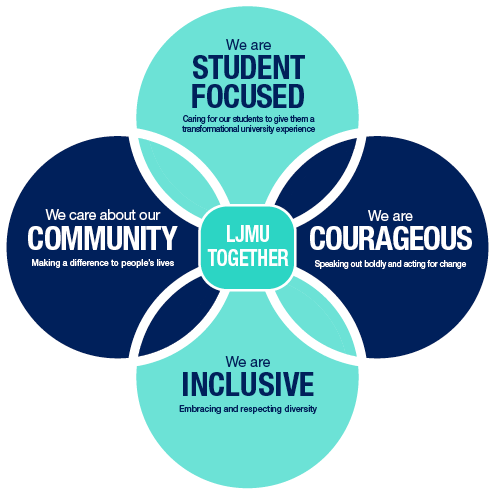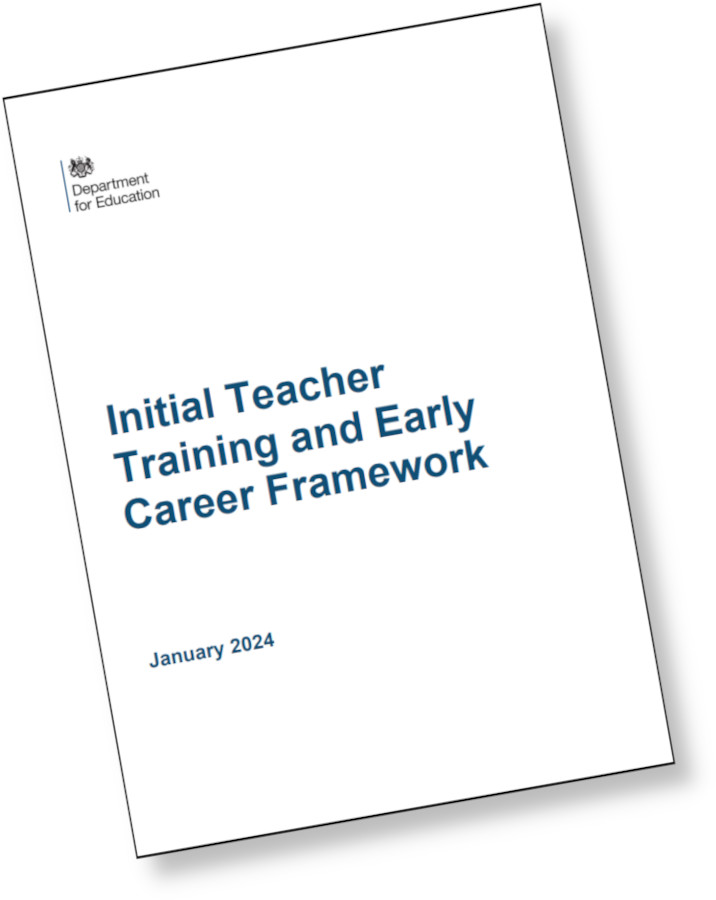
At Liverpool John Moores University the School of Education offers opportunities for student teachers to become qualified teachers in the primary and secondary sectors (including through a variety of School Led training routes).
Our ambitious curriculum model is thoughtfully constructed and sequenced; it ensure that programmes achieve an appropriate balance of research-informed and practice-informed content. Our Initial Teaching Education (ITE) curriculum carefully scaffolds learning enables student teachers to develop their professional confidence; this is further developed through skilful mentoring from expert colleagues in our partnership schools. Our intent is to develop curious and reflective teachers who are agents of change and who champion equity, diversity, and inclusion in their classrooms and beyond. LJMU student teachers strive to enable all learners to succeed.
The complex knowledge and practice involved in becoming a teacher develops over time. All LJMU ITE Programmes operate a 'phased' approach to curriculum design and placement experience.
The Phases are:
- Phase 1: Orientation and Beginning Teaching and Learning.
- Phase 2: Consolidating and Developing Teaching and Learning.
- Phase 3: Extending Teaching and Learning leading to Qualifying to Teach.
Student teachers will be assessed formatively against the LJMU ITE curriculum throughout the ITE year.
The Initial Teacher Training and Early Career Framework

The DfE Initial Teacher Training and Early Career Framework (ITTECF) is a statutory framework which outlines a minimum curriculum entitlement for student teachers. All LJMU ITT curricula have been designed to incorporate the ITTECF in full. The LJMU curriculum is carefully sequenced, coherent and appropriate to the subject, phase and age range.
The framework has been designed to support development in the following core areas: high expectations and managing behaviour; how pupils learn, classroom practice and adaptive teaching; curriculum; assessment and professional behaviours.
LJMU Lesson Analysis Forms and Phase Review forms reflect these themes. This enables colleagues across the partnership to monitor and evaluate student teachers' progress against our ambitious curriculum. All student teachers will be assessed against LJMU’s ITE curriculum.
The ITTECF sets out two types of content: 'Learn that...' statements in the left-hand column and 'Learn how to...' statements in the right- hand column. The 'Learn how to' statements entitle student teachers to opportunities to learn from expert colleagues and to practise their developing skills, drawing on feedback from, and discussions with mentors and tutors about how to improve. Implementation of the framework encourages a seamless link between centre and school-based practice.
The ITTECF sets out the entitlement of every student teacher and early career teacher (ECT) to the core body of knowledge, skills and behaviours that define great teaching, and to the mentoring and support from expert colleagues that they should receive throughout the three or more years at the start of their career.